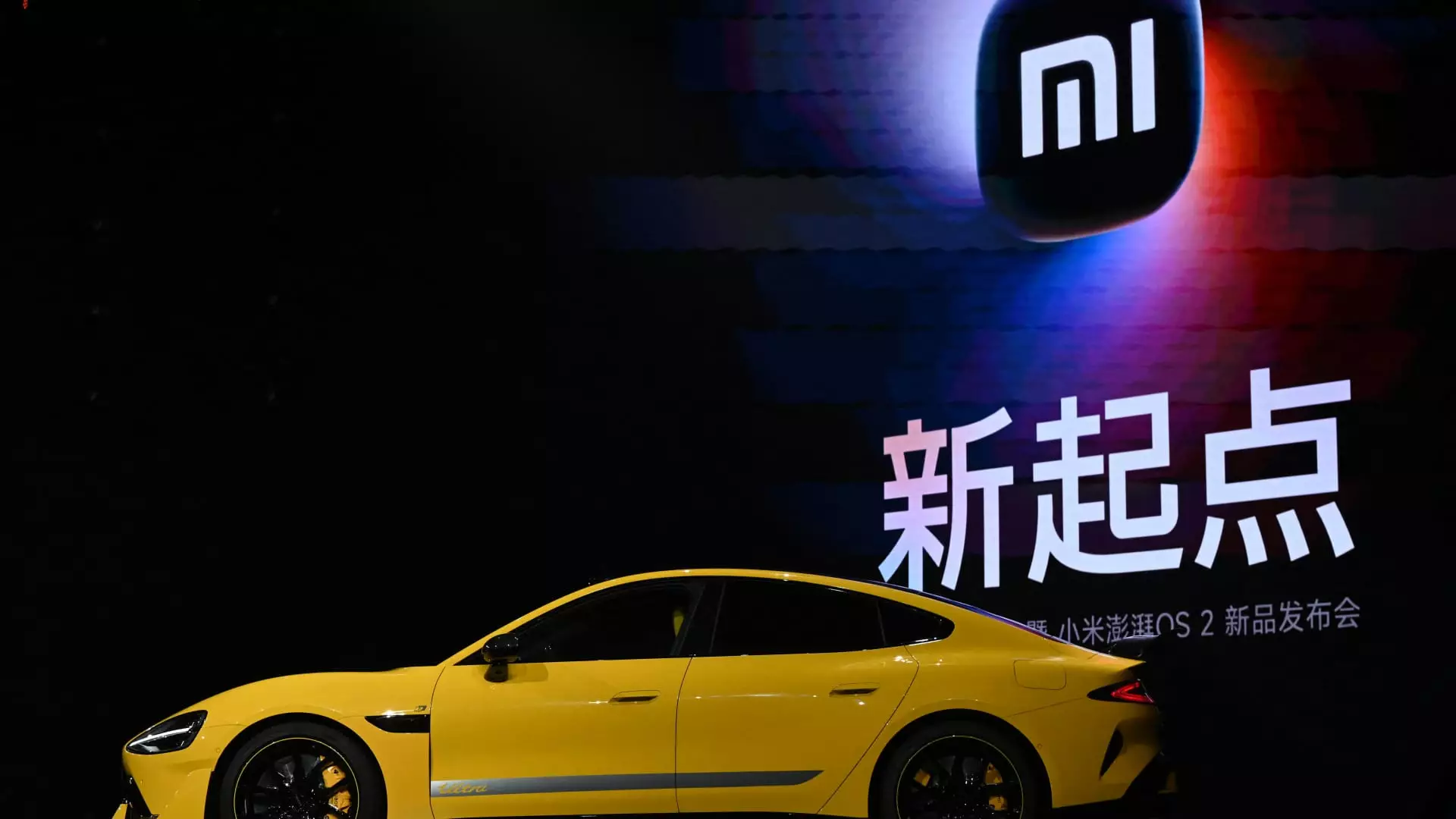In the midst of an electric vehicle (EV) revolution, Chinese tech giant Xiaomi is marking its territory with significant strides in the automotive sector. As of October, the company has delivered over 20,000 units of its SU7 electric vehicle, reflecting a strategic acceleration in production as it seeks to carve out a niche in the intensely competitive landscape of electric mobility. This bold venture into EVs isn’t merely an afterthought for the well-known smartphone and appliance manufacturer; rather, it underscores Xiaomi’s ambition to diversify its product offerings and establish a stronghold in one of the most promising automotive markets in the world.
Xiaomi’s timeline in the automotive realm began in 2021, the year it unveiled its plans to manufacture electric vehicles. In line with these ambitions, the company established a dedicated factory for car production, reinforcing its commitment to this new venture. Acknowledging the fierce competition prevalent in the market, Xiaomi’s goal is to achieve an impressive target of 100,000 SU7 deliveries by the end of November. This aspiration reflects a confidence that is evidenced by the results thus far; with cumulative deliveries surpassing 75,000 units, Xiaomi’s approach has proven to be both aggressive and effective.
Interestingly, Xiaomi’s SU7 model, unveiled at a price point approximately $4,000 lower than Tesla’s Model 3, has positioned itself as a cost-competitive option for consumers in China. This pricing strategy plays a crucial role, especially as Tesla adjusts its pricing strategy to maintain its competitive edge. The competitive landscape is further complicated by other key players in the market, such as Xpeng, Nio, and Geely’s Zeekr brand, which have each achieved significant milestones in their delivery figures, underscoring the rapidly evolving dynamics of the EV sector.
Xiaomi is not stepping softly into a realm where it is unfamiliar. The company’s rivals have established extensive infrastructures and loyal customer bases over the years, making their advances into the EV market robust and hard-fought. For instance, both Xpeng and Nio took years to reach their delivery milestones, with Xpeng delivering a noteworthy monthly record of over 20,000 units recently, signifying the power of established branding and consumer trust.
Despite these challenges, Xiaomi’s impressive monthly delivery figures caught the attention of industry analysts, suggesting that the company is poised to become a formidable competitor in the world’s largest EV market. Analysts from Stansberry Research highlighted that Xiaomi’s gross profit margins from electric vehicles are comparable to established competitors, suggesting the company’s ability to balance costs while positioning itself firmly in the market.
Xiaomi’s ambition is not merely restricted to the SU7; the recent announcement regarding preorders for its high-end sports model, the SU7 Ultra, represents a strategic move to enter the premium segment of the market. Priced at approximately $114,304, the SU7 Ultra has already generated buzz, evidenced by over 3,600 preorders within mere minutes of its announcement. This zeal for the new model likely recalls Xiaomi’s prior successes in smartphone sales, where innovative technology and aggressive pricing have often paved the way for rapid market entry.
The professional accolades earned by the SU7 Ultra, including claims of it being the fastest four-door sedan on the Nurburgring, further amplify its appeal. Analysts, buoyed by the company’s aggressive production plans, have revised their forecasts for Xiaomi’s annual car deliveries, anticipating that the brand could reach 250,000 units in the coming year—a significant leap from previous estimates.
Xiaomi’s journey into the electric vehicle sector is just beginning, yet its ambitious plans and early successes illustrate the potential for innovation and growth within this competitive landscape. The company’s strategy augurs well for its future, but challenges remain. As Xiaomi navigates through a market dominated by established automakers, it must continually innovate and adapt to consumer demands. However, with a combination of aggressive pricing, substantial production capabilities, and a commitment to quality, Xiaomi is not just another newcomer—it’s emerging as a serious contender in the electric vehicle race. Whether Xiaomi can maintain this momentum will largely determine its success in reshaping its identity from a tech giant to a significant player in the automotive industry.

